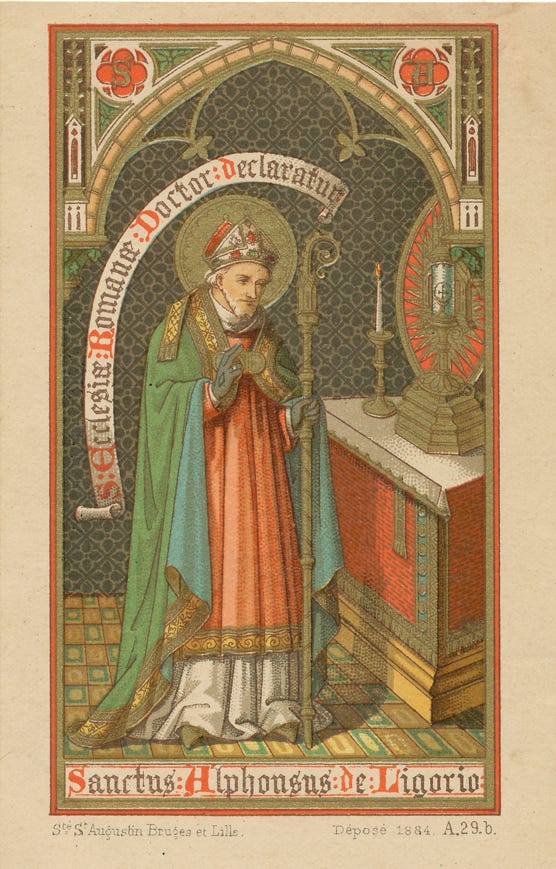Here is a window into another time and a way to think about our own.
Amleto Cicognani (1883-1973) enjoyed a storied career in the Church - priest, archbishop, cardinal, secretary of state, dean of cardinals. For all of that, he is well-remembered for his force of eloquence and sound teaching - a teaching that resonates yet today.
This is an excerpt of a sermon delivered by Cicognani, then Apostolic Delegate to the U.S. He was speaking at the Church of Our Lady of Perpetual Help, Brooklyn, New York, 84 years ago today, April 12, 1940, on the occasion of the centenary of the canonization of St. Alphonsus de Liquori (1696-1780).
“All of us today, of whatever rank or state of life, can profitably consider the career of St. Alphonsus.
“He lived in a century that was very much like our own. It was the century of Voltaire and of the rationalists, who launched a deliberate campaign for the destruction of supernatural faith.
“In our day, atheistic Communism and various types of paganism and immorality are making the same attempt; and evil, contagious as evil always is, extends its influence even among the very followers of Christ, if they are not devout and vigilant.
“Alphonsus rose up against the atheistic and immoral rationalism of his time; he dedicated the greatest part of his long life to pointing out the justice and moderation of Catholic morality, equally without rigorism and laxity.
“While he did give himself with great zeal to a difficult and lofty task, he was withal very human. His gifts included music, poetry, and painting, and he used all of them to make religion and piety more winning to the souls of men.
“The piety which he practiced and taught was indeed quite simple. You must live in the world, he used to say, but you must remember that life is only a pilgrimage, and that you are on the road to eternity, which will be for you whatever you choose to make it. Those who lived as though they believed in no other world than the present, end by losing all hope. They kill their intellect and heart in carnal desires, they lose sight of God and conscience itself.
“Experience proves that this is the greatest possible misfortune, even on this earth. Man needs sanctifying grace, which is the only true life; and to obtain this grace, he must stay humbly close to God in piety.
“These were the great simple truths that Saint Alphonsus taught.”





